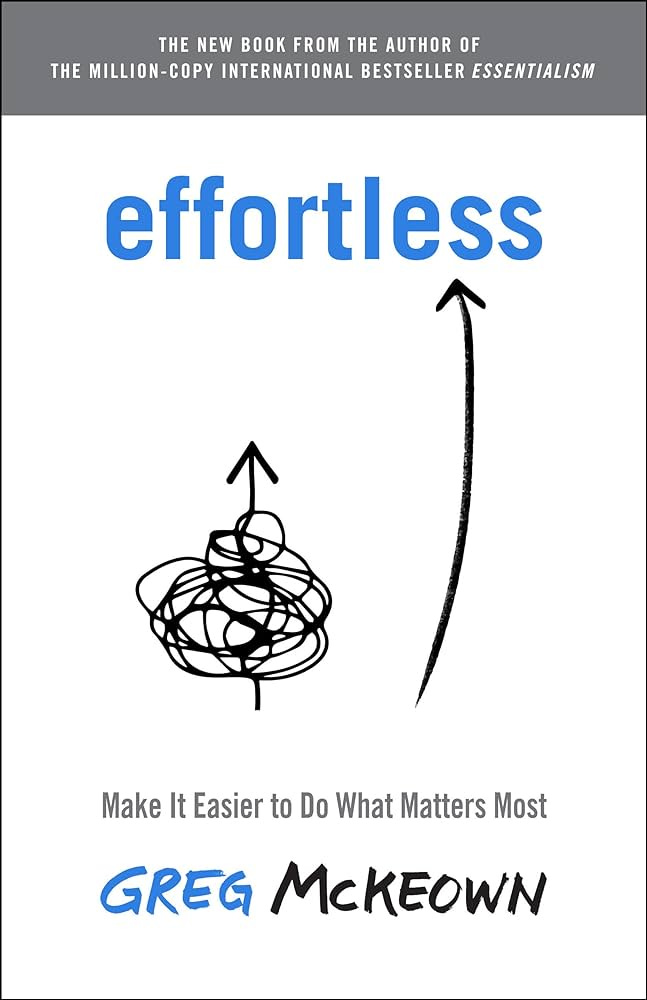We were an hour into a second meeting. We were still struggling to get through the first item on the agenda I prepared. We needed to get the group to agree to a single goal. But we seemed to go in circles about different projects and initiatives and data.
My manager messaged me: “It should be so much easier than this.”
I feel that way all the time.
Decisions should be easier. Work should be easier. Everything should be easier.
So why does it feel so difficult all the time? Is there a way to make some things easier?
Well, that is the premise of the book Effortless by Greg McKeown.
Overview
Essentialism, McKeown’s first book, is about the disciplined pursuit of less. If we use the example of rocks, pebbles, and sand in a jar, essentialism is about eliminating all the unnecessary rocks and pebbles and sand.
Each of us only has a jar that can contain so many things, so we have to cut out the non-essential items and focus on putting in the rocks first (the most essential things), and then the pebbles, and then the sand.
But what happens when you’ve cut out everything but the essentials? And you still can’t fit everything in?
I feel like I perpetually go through this exercise. I am a believer in essentialism, and am constantly pruning away non-essential items in my life (though I’m imperfect at it). But there is still never enough room. What happens when you truly can’t fit in the essential things? I feel like this is a genuine question for many of us, especially many of you reading this.
That is where Effortless steps in. It asks, “How can we make those rocks smaller so they can fit in the jar?” How can we find easier ways of doing the essential things so we can actually fit them into our lives?
Key Takeaways
Harder isn’t better
Do we always need to make things the most difficult? Is the hard way the better way?
In many of our cultures, especially American culture, we have this puritan idea that the easy way is bad. It is ingrained in many of us. I know it is ingrained in me.
For example, when I edit my regular product podcasts, I almost always opt for the most difficult way because I believe it is better. It involves me going through the entire episode in my expensive software and editing every minute of the show. It makes for a good final product, but I also have tools that can do a lot of the work for me in less time. They are way easier and faster. I don’t think they do as good of a job, but is it worth the time I spend to manually do everything myself? Probably not.
So why do I consistently opt for the hard way when there is an easier way? I think it is because it is ingrained in me to put in as much work as possible.
In the book, however, it suggests that we invert this idea. Rather than think about problems or tasks as difficult, ask, “What if this could be easy?”
Keep reading with a 7-day free trial
Subscribe to Prodity: Product Thinking to keep reading this post and get 7 days of free access to the full post archives.





